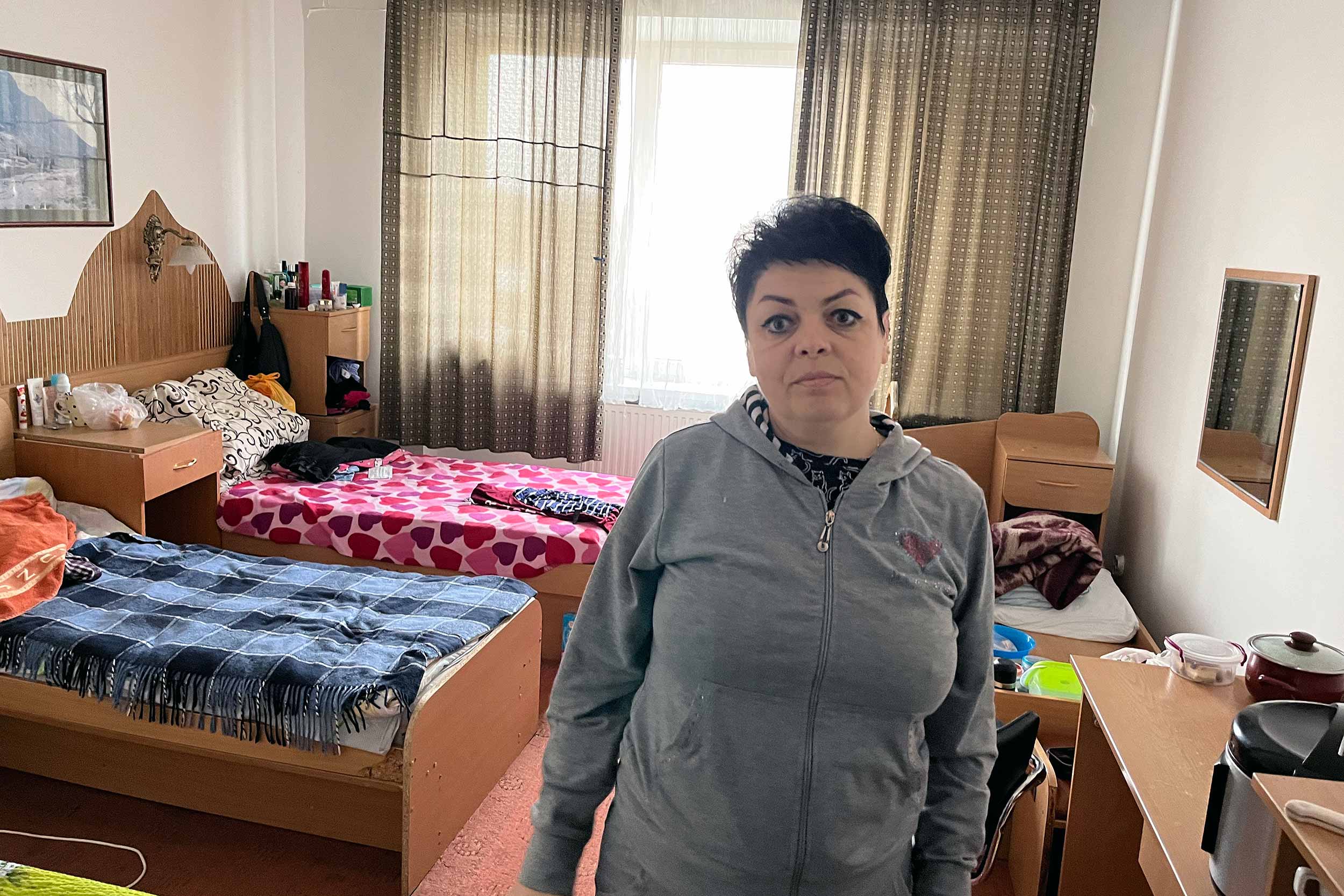War Comes to Lviv
Seven people reported killed as bombs hit workshop near main railway station.
War Comes to Lviv
Seven people reported killed as bombs hit workshop near main railway station.
War came to the centre of Lviv this week, with four shells early on April 18 bringing the first civilian deaths to the safe haven Ukrainian city tucked far to the west.
The shelling coincided with a broadside by Russian forces across Ukraine, including Kyiv and Kharkiv, signalling the launch of renewed operations in the Donbas.
Seven people were reported killed in Lviv, when a shell struck an auto and tyre repair shop 2.5 kilometres from the city’s main station.
Flames engulf an auto and tyre repair shop, after it was hit by a Russian shell, 2.5 kilometres from Lviv's main train station on 18 Apr '22.
“I was in shock,” said Natalia Plish, 44, a factory worker who witnessed the attack from the fourth floor of a nearby local hotel which houses many people displaced from across Ukraine. “It was very loud, I don’t know how to describe it, all I can remember is the sound of breaking glass.”
Several of the hotel windows blew out, and one child – whose family had fled the horror of Kharkiv in the east for safety – was wounded, losing a finger.
Official Ukrainian sources said that four locations were hit, including three military storage facilities, which they said were unused. Russian sources said at least one was full.
“This is the first time in Lviv civilians have been killed, so it is very sad and very unusual for us,” said Oleh Kindzer, Franchise Manager at the popular Lviv Croissant Bakery chain. “We really understand now that there is no safe place in Ukraine anymore.”
With its cobbled streets, elegant architecture and central plaza often teeming with people and live music, Lviv has acted as Ukraine’s safe haven throughout the war.

Its pre-war population of around 700,000 has ballooned to more than a million, with displaced Ukrainians from across the country travelling here via the elegant, jammed central station. Most transit on to Poland, but many remain.
Many Ukrainian companies relocated personnel here, and until the Russian pull-back at the end of March it served as the main base for international journalists.
While air raid sirens have been frequent, so far Lviv has suffered limited strikes: a military airbase outside of town on the first day of war, an army training camp in Yaroslav, 60 kilometres west (with the reported death of 35 people) and an aircraft repair facility in mid-March. On March 26, coinciding with US President Joe Biden’s speech in nearby Rzeszow, Poland, an oil-storage tank was destroyed.
This week’s attack was the first to hit a civilian target. Those who died included staff and family members at the repair shop.
There may have been a tactical rationale for the attack, even if the exact hit may have been errant. The auto shop perches on a rise, above train tracks and the hotel for displaced just opposite.
Directly across the street is a significant rail yard, with many waiting cars. In the event, minor damage caused disruption and a few hours delay in some services.
Yet had this yard been struck – especially if any were carrying fuel to compensate for other recently attacked fuel storage facilities – the explosion could have been substantial, and disruption to the country’s vital rail system via Lviv significant.
“I cannot comment on whether this is a strategic line or not, but the attack was close to hitting the railway connection,” acknowledges Oleksandr Shevchenko, head of passenger communications and client services at Ukrainian Railways. “Any hit would cause some delay to our services.”
Lviv has a serious role as the supply route for goods, both military and civilian. Humanitarian aid and armaments transit through western Ukraine to reach the entire population as well as frontline troops.
The attack took place on the day it was reported that the first shipments of the major new US military aid package were arriving at the border.
A senior Ukrainian defence source who asked to remain anonymous underlined that Ukraine maintained multiple supply routes.
“We have many ways to bring in what we need,” he said. “But this attack is a reminder, a hello to the West."
Translation and additional reporting by Oksana Cooper.
